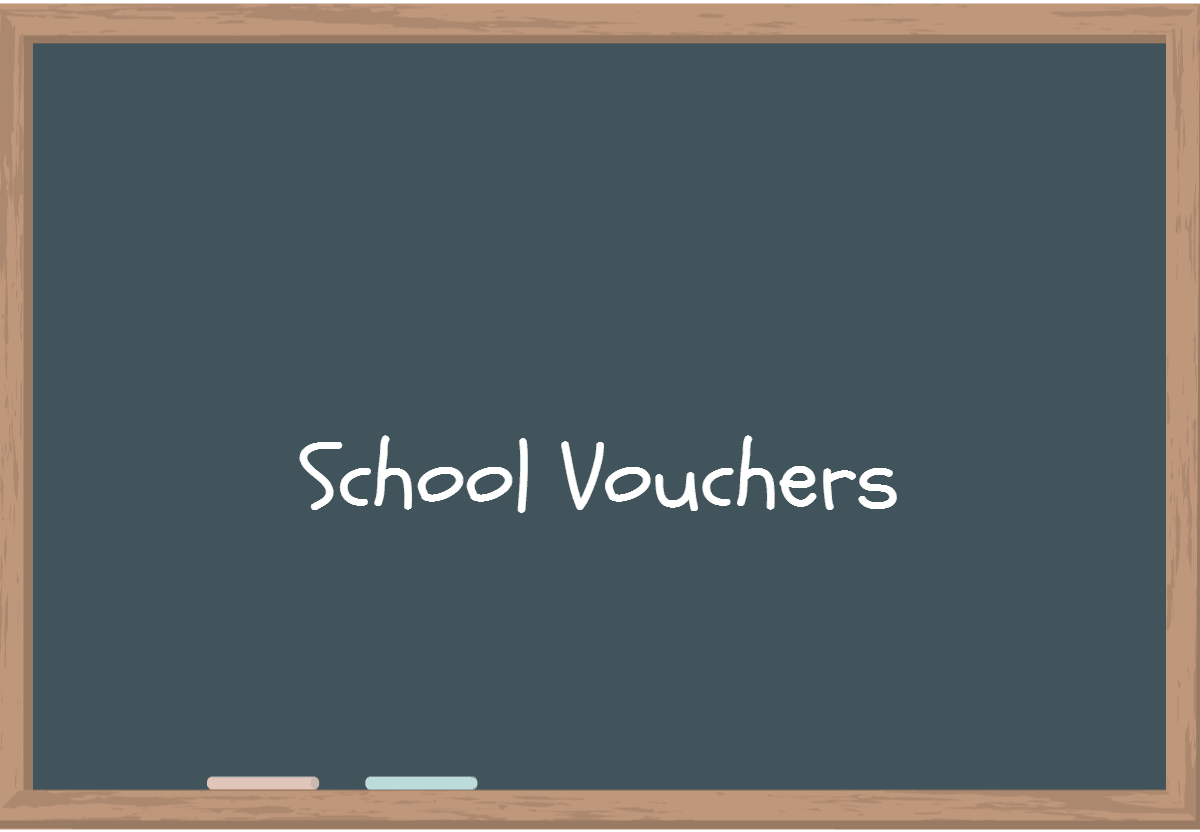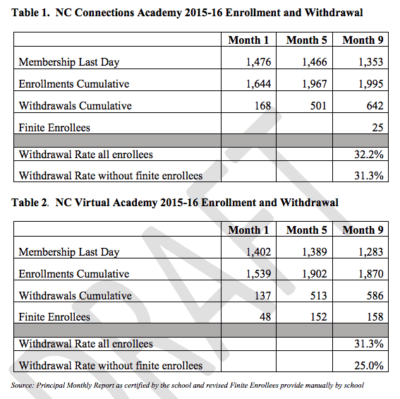

A common refrain I hear in the course of my reporting and writing about school vouchers — a program that is set to take a large bite out of our public coffers in North Carolina in the months and years ahead — is that at the end of the day, it’s the parents who should be the enforcers of accountability for this publicly funded effort to shift state money into private schools.
“Parents know what’s best for their children and will seek an adequate, decent education for their children,” said Dick Komer, an attorney who works with the Institute for Justice, a pro-school voucher organization based out of Arlington, Virginia.
Komer said this on the day a case challenging the constitutionality of the school voucher program had wound its way to the state’s highest court. His claim was that parents, some of whom he represented in that case — and not administrators who oversee public schools — are the best at holding educational providers accountable, because it’s the parents who intuitively know best whether or not their students are learning.
There are some problems with this scenario, chiefly that a possible outcome will be that some students will enter into a private educational environment that may fail them and parents will only realize it after some time has passed and their children have consequently missed out on critical educational gains or worse. Accountability is achieved only after the fact, as the families move on to seek something better somewhere else.
Komer’s answer to that would likely be that there are local public schools that are also failing kids — an assertion that is one I would not refute. In 2016 North Carolina’s spending on students continues to rank toward the bottom in the nation and as resegregation reemerges in our public schools, it is clear that there are districts and buildings that are better resourced to offer high quality education than others. Unless we make some drastic changes, the scenario can continue on where kids — more often those who are poor and living in rural areas — will have limited access to high quality education.
Those are big problems to solve, no doubt. But there is one very big difference between choosing between a local public school and a local private school, publicly funded or not: the degree to which you can know in advance what you’re signing up for.
North Carolina has worked long and hard at achieving for our local public schools a strong system of accountability and transparency. It is not perfect, but it is a pretty robust apparatus that allows the public to understand how their tax dollars are being spent in our local public schools (and identify areas that need improvement). It also includes curricular standards that hold our students to high academic goals and works to ensure that our students are not discriminated against and kept safe.
The accountability system also provides a public record of how each public school is performing — graduation rates, standardized test scores, teacher quality and school safety are all measured and reported each year. There are some flaws with how this system has recently evolved; the new A-F school grades don’t adequately reflect how students grow academically over time at their schools. But, at least, parents can get a sense from the start how their local public school stacks up against other local public schools. In more urban areas like Wake County and Guilford County, there is choice built into the system and families can choose from a number of public school options — a transparent and accountable system of public school choice that’s worth building and investing on a larger scale to reach more students.
Conversely, transparency and accountability is something we don’t have for our nascent school voucher program, which is scheduled to shift up to $1 billion in taxpayer dollars over the next ten years to private schools that are not required to adhere to any curricular standards or assess students in a way that is comparable to public schools. Our voucher program is one of the least accountable and transparent when comparing program participation standards to that of other states in a document authored by the National Conference of State Legislatures.
We need to ask more of a program that could spend billions of taxpayer dollars on education.
So in the spirit of transparency and accountability for North Carolina’s school voucher program, here’s a wish list for 2017.
- Prevent publicly funded private voucher schools from discriminating against anyone.
Private voucher schools can pick and choose who they want to educate, which contradicts the basic tenet that public dollars should flow to schools that do not discriminate, period.
Despite receiving tax dollars, private voucher schools are free to turn away students who have disabilities, students who are gay or transgender and students who don’t subscribe to a religious doctrine. (Read more about that in the Charlotte Observer.)
North Carolina should require higher standards for non-discrimination in publicly-funded private voucher schools and provide protections for students on the basis of religion, sexual orientation and disability.
- Require publicly funded private voucher schools to reveal how they spend taxpayer dollars.
While private voucher schools receiving more than $300,000 annually in taxpayer dollars must undergo a financial audit that is submitted to the state, that requirement only captures a very small percentage of the schools that currently receive public dollars–last year only three voucher schools out of more than 400 were subject to that requirement.
This means that the overwhelming majority of private voucher schools are free to spend taxpayer dollars as they choose, out of the eye of the public.
Why is this a big deal? Look no further than Milwaukee, home to the country’s oldest school voucher program.
At Milwaukee’s Mandella School of Science and Math, Principal David Seppah — who also founded the school — used proceeds from state voucher payments to buy two Mercedes-Benz automobiles at a cost of $65,000. Seppah also owed the state almost $330,000 for more than 200 checks officials acknowledged they “inappropriately” cashed. Many of those checks, worth about $1,500 a piece, were made out to families whose children never attended Mandella.
This scenario can easily occur at a private school in North Carolina if we are to allow financial oversight standards to be weak. Other states require voucher schools to provide documentation of financial stability in order to participate in their state funded voucher programs. North Carolina should consider similar standards for participation.
- Require publicly funded private voucher schools to be transparent about their students’ academic progress and adhere to standards of high quality education.
There’s no requirement that private voucher schools teach core subject areas or other set curricula — these schools have complete freedom in deciding how to educate students. While some see that as an advantage, the fact that there are no curricular standards means that some schools can cheat students out of receiving high quality educations that prepare them for college or careers.
In addition, the vast majority of private voucher schools in North Carolina are religious. Many of these schools use Christian-based textbooks that fail to teach students about modern advances in biology and genetics, misstate the theory of evolution and even make the claim that dinosaurs and humans once co-habited the Earth.
Finally, here’s the accountability mechanism currently in place when it comes to transparency for private voucher schools’ academic track record: require all private voucher schools to administer a nationally normed standardized test of their choosing once a year, and require that schools with 25 or more voucher students make those test results on the aggregate a public record.
Last year, only 17 percent of participating private voucher schools were required to make those standardized test results public. And because schools can choose from many different kinds of nationally normed standardized tests, it’s impossible to compare schools’ academic outcomes — so how are parents supposed to be adequately informed when choosing a private school?
North Carolina should do better. How? Require private voucher schools to adopt standards for the curricula they adopt and administer either state assessments or limit the number of nationally-normed tests private voucher schools can use to three that are highly regarded. This will allow researchers to compare voucher and public school student performance in a meaningful way. The current system employs too many different assessments for researchers to be able to make meaningful comparisons.
We should also require private voucher schools to participate in a school grading/report card system — either the state’s current system or another with a robust methodology — and publish that information publicly.
Finally, let’s tie any future expansion of the voucher program to the current performance of students in the program.
- Require private voucher schools to employ licensed and vetted teachers and be accredited.
There’s no requirement in the school voucher law that teachers have to be licensed. In fact, teachers don’t even need a college degree—only a high school diploma. While some teachers in private schools may have extensive subject area knowledge, if they are unlicensed that could be an indicator that they may not have strong pedagogical skills, meaning they lack the know how necessary to impart their knowledge to their students.
In addition, teachers do not have to undergo a criminal background check — only the head of the school is required to pass muster on this important safety measure.
Private schools participating in the school voucher program also do not have to be accredited by an organization that seeks to determine whether or not approved schools meet high standards for teaching and learning. Individuals, owners or operators of private schools do not have to have experience in education nor are they subject to open meeting laws that ensure important decisions are explained and held accountable to parents and taxpayers.
North Carolina should require private voucher schools to employ a minimum number of licensed teachers. All educators and administrators should be subject to criminal background checks. Finally, the state should consider how private voucher schools might become accredited, either through a respected national accrediting agency or by developing its own system of accreditation.


